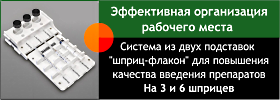Extrapolation escape test is used for studies of cognitive function in stressful conditions. A cylinder of small diameter is partially submerged in water. A rat is put into the cylinder and it has to find a way out. In the beginning it mostly jumps upwards, many times, until it realizes that it can duck, and as soon as it ducks the test is finished and the rat is put out of water. Many substances dramatically affect the ability of rats to solve the test. The number of jumps and the time spent in the cylinder is calculated.

Fig. 1
Producer: OpenScience
| Cat.number | Price | ||
|---|---|---|---|
| TS0604 | Extrapolation Escape Task test for rats weighting 150-220g | 170 | |
| TS0604-1 | Extrapolation Escape Task test for rats weighting 220-350g | 200 |
|
In-stock items are shipped in 14 days |
Prices are given in EURO, VAT not included. Shipment not included. |
Materials
Internal cylinder - translucent plastic (PMMA), external container - white plastic (PP). stainless steel rods hold the cylinder in the center of container.Dimensions:
| for rats weighting 150-220 g | for rats weighting 220-350 g | |
| internal cylinder diameter | 7.3 cm | 9 cm |
| internal cylinder height | 23 cm | 23 cm |
| external container diameter | 31 cm | 35 cm |
To perform a test add water (22 °С) to the container. The bottom of the cylinder must be submerged to a depth of 2.5 cm.
Components included
TS0604: Container for water, transparent cylinder, stainless steel rods 3pcs, Technical description and warranty card
TS0604-1: Container for water, transparent cylinder, stainless steel rods 3pcs, Technical description and warranty card

Fig. 2
To perform a test fill it with water (22 °С) till the inner cylinder is submerged 2.5cm deep

Fig. 3
Protocols
Description of the original test "Extrapolation escape task" (EET) (Бондаренко Н.А., 1980).
In the EET test, a rat was placed for up to two minutes inside a cylinder with a diameter of 10 cm, the lower edge of which was lowered into the water (240C) to a depth of 2.5 cm. for up to two minutes. The height of the water column is 25cm. in a water tank with a diameter of 60cm. Immediately after diving, the rats were removed from the water. According to Bondarenko (1980)[1], 80% of the animals dive up to 20 seconds after water immersion and escape hypothermia. We registered the number of attempts to jump out from the water before diving. After that, all animals were divided into jumping rats and non-jumping rats subgroups.
[1] Бондаренко Н.А. Зависимость реализации поведения избавления из острой стрессогенной ситуации от типологической принадлежности животных. Деп. в ВИНИТИ №2038-1980г.


 Print version
Print version Frequently asked questions
Frequently asked questions 